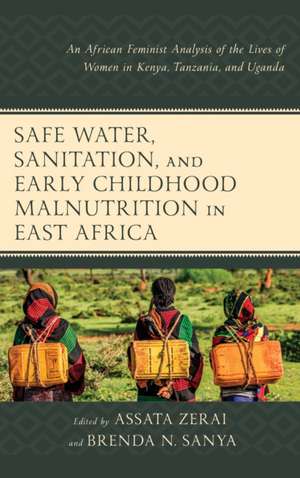SAFE WATER SANITATION AMP EARLY
en Limba Engleză Hardback – 15 ian 2018
Preț: 649.38 lei
Preț vechi: 843.36 lei
-23% Nou
Puncte Express: 974
Preț estimativ în valută:
124.28€ • 128.76$ • 103.72£
124.28€ • 128.76$ • 103.72£
Carte tipărită la comandă
Livrare economică 21 martie-04 aprilie
Preluare comenzi: 021 569.72.76
Specificații
ISBN-13: 9781498520836
ISBN-10: 1498520839
Pagini: 200
Dimensiuni: 152 x 229 x 20 mm
Greutate: 0.45 kg
Editura: Rowman & Littlefield
ISBN-10: 1498520839
Pagini: 200
Dimensiuni: 152 x 229 x 20 mm
Greutate: 0.45 kg
Editura: Rowman & Littlefield
Notă biografică
Assata Zerai is professor of sociology at the University of Illinois at Urbana-Champaign.
Brenda N. Sanya is A. Lindsay O'Connor visiting assistant professor of educational studies at Colgate University.
Descriere
Presenting a framework that considers the ways that neocolonial relations, gender, class, ethnicity, and other dimensions of oppression intersect to impact upon the experiences and agency of women and children, authors explore the effects of water and sanitation quality and availability on early childhood morbidity in Kenya, Tanzania, and Uganda.
